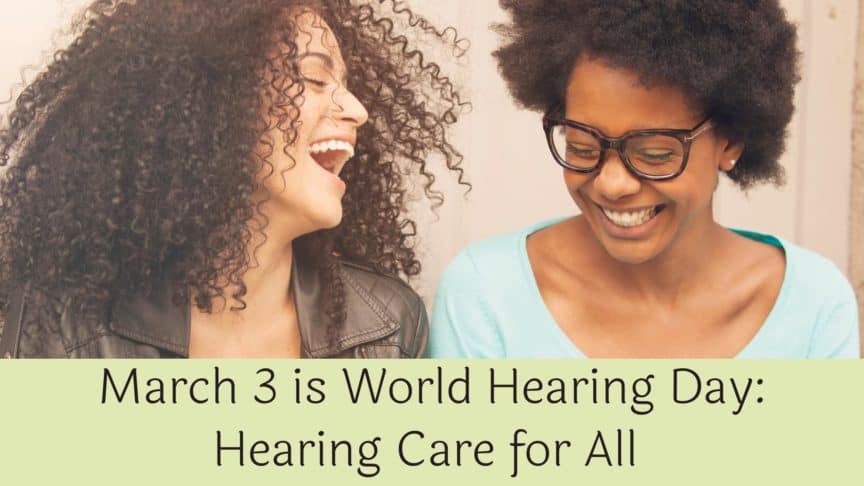World Hearing Day is a global campaign launched by the World Health Organization (WHO) to highlight the importance of hearing health. Invested in a call to action, World Hearing Day advocates for early intervention in treating hearing loss and greater awareness of its risk to overall health. Hearing loss is a permanent medical condition that impacts all aspects of life. Practicing safety measures and prioritizing hearing health can prevent or significantly reduce the risk of its development!
World Hearing Day: Key Statistics
Hearing loss is a public health epidemic that is expected to grow exponentially. The following statistics (provided by WHO) illustrate the pervasiveness of hearing loss:
- 466 million people globally have disabling hearing loss
- Hearing loss is the third most common chronic medical condition adults navigate in the U.S.
- impacting nearly 1 in 5 people
- Health care costs related to untreated hearing loss amount to $750 billion annually
- 1.1 billion teens and young adults are at risk of hearing loss caused by unsafe use of personal audio devices and exposure to loud noise in entertainment venues
- 60% of hearing loss can be prevented through public health strategies
These statistics illustrate the scope of hearing loss which affects health in numerous ways.
Understanding Hearing Loss
It is important to be aware of the causes, signs, and impact hearing loss can have. There are numerous factors that can contribute to developing hearing loss including:
- Existing Medical Conditions: including hypertension, diabetes, and cardiovascular disease increase the risk of hearing loss
- Exposure to Loud Noise: one time or consistent exposure to loud noise can damage the hair cells in the inner ear, causing permanent hearing loss.
- Aging: known as presbycusis, age-related hearing loss becomes an increased risk for older adults as the auditory system naturally ages over time
Other factors include genetic history and head/neck injuries. Impaired hearing results in a reduced ability to hear and process sound which produces a range of symptoms including the following:
- Tinnitus: a buzzing, ringing, clicking like noise in one or both ears
- Sounds are slurred or muffled making it difficult to hear clearly
- Frequently asking others to repeat themselves, speak loudly, and/or slowly
- Difficulty hearing in places with background noise, needing to move to quieter settings
- Ability to hear better in one ear compared to the other
- Increasing the volume on electronic devices
These symptoms can be experienced mildly to severely, taking a toll on one’s ability to perform and manage daily tasks by straining communication. Processing incoming sound becomes difficult so engaging in everyday conversations presents challenges that can be exhausting to experience. Strained communication often leads to social withdrawal, with people avoiding interactions and conversations altogether. This combination affects relationships and mental health – contributing to depression, loneliness, anxiety etc. If left untreated, hearing loss can worsen, amplifying symptoms and their impact.
Protecting Hearing Health
World Hearing Day emphasizes addressing and protecting hearing health as much as possible. By tending to hearing health you reduce your risk of developing impaired hearing and its associated medical conditions like cognitive decline. There are various ways to protect your hearing health including practicing the following safety measures:
- Protective Wear: wearing protective gear like headphones, earbuds, or earmuffs reduces the amount of sound you absorb and its impact.
- Reduce Volume: it is important to maintain a low volume on electronic devices – you can measure sound by downloading an app which measures decibels
- Take Listening Breaks: This allows your auditory system – brain and ears – to rest from constantly absorbing and process sound throughout the day.
Another critical way you can protect your hearing health is by having your hearing tested regularly. Hearing tests involve a noninvasive and painless process that measures hearing ability in both ears. Conducted by a hearing healthcare professional at our office, hearing tests identify any impairment and the degree which informs the most suitable treatment option.
There are effective ways that hearing loss is treated, the most common treatment being hearing aids. These electronic devices are designed to provide significant support, maximizing hearing capacity which not only enhances communication, but overall health.
If you are ready to begin your journey to better hearing, contact us today! We look forward to working with you.

